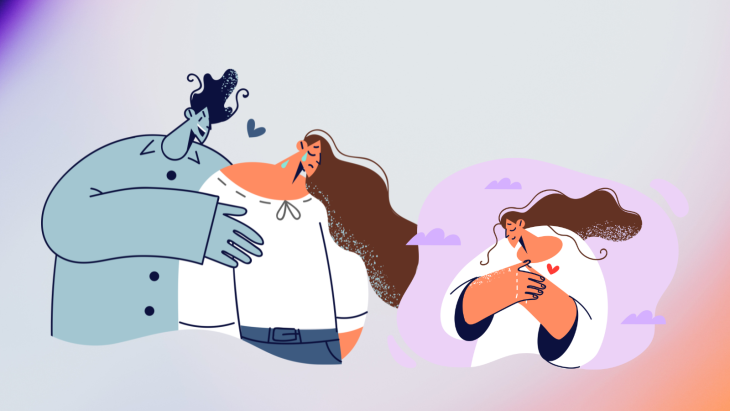Recent Posts
- Men masking mental health issues. Why is men's mental health declining in the US?
- I am hesitating on joining the armed forces! Are people in the armed forces more prone to mental health problems?
- Getting acquainted with the 7 types of anxiety disorders. What do I need to know about them?
- My husband needs to recover from alcohol dependence and mental health issues. How can I help him?
- Are there good and bad debts? And how does debt impact mental health?
Most Popular
The secret to widows' wellbeing. What makes widows happy?

Data from recent research show interesting findings about widows in the US. After the height of the Covid-19 pandemic, statistics show that the average age of widows in America is only 59 years old! The average
About 2,800 new widows add to the 11.8 million widows in the US everyday. These are staggering numbers and quite a unique situation.
In addition, the demographics of widows compared to the generations before are also changing. They are educated, engaged in their careers while taking care of the household. Since 7 in 10 of these widows are young, being within the 51-59 age range, these widows face unique challenges that might be stressful.
Do modern widows report being happier and healthier?
We can be quick to generalize that life would stop, would be unbearable, or would be marked with intense grief and mourning that would last for years after the death of a spouse.
However, recent research results paint another interesting facet of being a widow. Research says that widows actually tend to become healthier and happier, even.
When the researchers checked older men who lost their spouse, the opposite was true. When a man becomes a widower, there is a greater chance that his health weakens and his mental health declines.
Moreover, when widows were compared to older married women in a similar age group, widows were in better physical health.
Can this challenge the previously established notion that being married decreases a spouse’s risk for diseases of the heart and depression?
What could contribute to a widow's wellbeing?
Those who look into this issue think that the reason is complex and reasons for widows’ wellbeing might be connected with gender roles and expectations we have on women, and traditions in society.
According to recent statistics, men have shorter lifespans than women in the US. An average male lives to 73, while a woman to 79 years. On average, women who live longer than their spouse have life still ahead of them. This might be a factor that enables them to cope with the loss, and adjust to incoming changes.
In addition, since women are traditionally viewed to be managers of the household, the loss of a spouse means lessening of the pressure to manage the home and family. Women, especially in generations who believe that they have to do the cooking, cleaning, childcare and manage the house while working a job, have now fewer responsibilities, decreasing their stress.
This also frees up more time for widows to do the things they love, things that they did not have time to pursue before. Activities include organizing family events and gatherings, celebrating holidays with family, and serving as volunteers for causes that are important to them.
When assessed what else contributes to their wellbeing, widows repost that:
- Widows enjoy high levels of self-reported health.
- Widows value the relationships they have built with family and friends over the years.
- Widows enjoy their homes.
- Widows find living with family members a source of happiness.
Widows and women in general, also seem to keep their social connections even after a spouse’ loss. Aside from their relationship with their husband, they have extended family, and a support network to help her go through grieving and also move on.
While there are many factors that influence life satisfaction after the loss of a spouse, these things remind us that there are important things in life that make us happy for the long term- satisfying relationships with people we love, and living a vibrant life in and outside of our marriage.
Look through the most rewarding healthcare industry jobs in the US and jumpstart your career in the medical field!








Comments